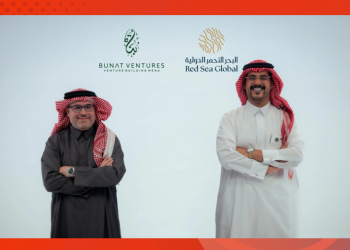Eight out of every ten UAE professionals now use artificial intelligence regularly in their jobs. This surge puts the Emirates second globally in AI workplace adoption, trailing only India’s 85% rate.
LinkedIn’s latest research reveals the UAE’s AI usage skyrocketed from 56% to 80% in just 12 months. This makes UAE workers among the most AI-savvy in the world, ahead of Saudi Arabia (77%), Brazil (76%), and Singapore (72%).
UAE Professionals Embrace AI Despite Learning Challenges
Nearly eight in ten UAE workers (77%) feel positive about AI improving their daily tasks. Even more, 81% say they enjoy experimenting with new AI tools and learning fresh skills.
But this adoption comes with costs. Almost three-quarters (73%) of UAE professionals describe learning new AI skills as having a second job. The constant need to stay current creates mounting pressure, with 48% feeling increased expectations at work.
Ali Matar, LinkedIn’s EMEA Growth Markets Leader, explains the trend: “UAE professionals are working hard to stay ahead of the curve, often learning AI skills on their own time and dime. This rapid shift brings pressure, but it also reflects a real hunger for growth.”
Skills Gap Persists Despite High Usage
Despite widespread adoption, many workers feel they’re not maximizing AI’s potential. Six out of ten UAE professionals (61%) believe they haven’t fully leveraged AI capabilities at work yet. This suggests a gap between using AI tools and using them effectively.
Nearly three-quarters of professionals invest personal time and money in AI training. They rely heavily on free tools (73%) and employer-provided training (68%) to build their skills. However, the pace of change pushes 65% to use AI in more advanced and creative ways than before.
Human Connections Still Trump AI Intelligence
Even as AI adoption soars, UAE workers value human connections more. A striking 85% say trusted colleagues offer insights AI cannot provide. Additionally, 82% believe personal relationships carry more weight in hiring decisions than qualifications alone.
This preference for human connections grows stronger for early-career professionals. Three-quarters (74%) of younger workers say relationships matter more now than before for career success. One in three UAE professionals has landed a job or advanced their career through their professional network.
Regional AI Economic Impact Could Reach Billions
McKinsey research shows generative AI could generate between $21 billion and $35 billion annually across Gulf Cooperation Council countries. This represents 1.7% to 2.8% of non-oil GDP in the region.
Energy sector companies stand to gain the most, with potential annual benefits of $5-8 billion. Financial services and infrastructure projects follow as major beneficiaries of AI implementation.
However, concerns about over-dependence are emerging. Recent KPMG research found 57% of UAE workers now rely on AI to complete tasks rather than learning to do them independently. Additionally, 72% use AI outputs without checking accuracy first.
Government Support Fuels Rapid Adoption
The UAE government’s active promotion of AI innovation helps explain the rapid workplace adoption. Officials have encouraged both public and private sectors to embrace AI technologies and drive innovation.
This support creates an environment where experimenting with AI tools becomes not just acceptable but expected. The result shows in the numbers. UAE organizations invest at least 5% of their digital budgets on AI, compared to 33% globally.
Skills Development Becomes Critical Priority
As AI usage grows, the need for proper training intensifies. Companies recognize that successful AI implementation requires more than just access to tools. Workers need structured learning programs to use AI effectively and safely.
The LinkedIn data shows UAE professionals actively seek AI education through multiple channels. Free online tools remain the most popular learning method, followed by employer-sponsored training programs.
The challenge ahead involves bridging the gap between current usage levels and effective AI application. Companies must balance encouraging AI adoption with ensuring workers develop complementary human skills that AI cannot replace.
The UAE’s position as a global AI adoption leader reflects both opportunity and responsibility. As workers navigate this transformation, the focus shifts from simply using AI tools to using them wisely and effectively.












